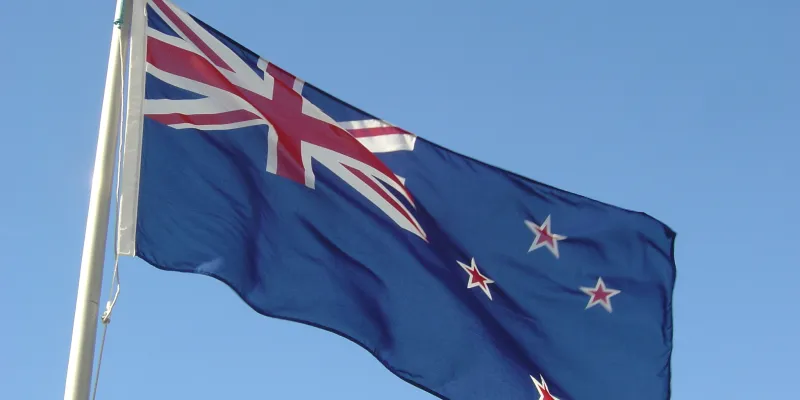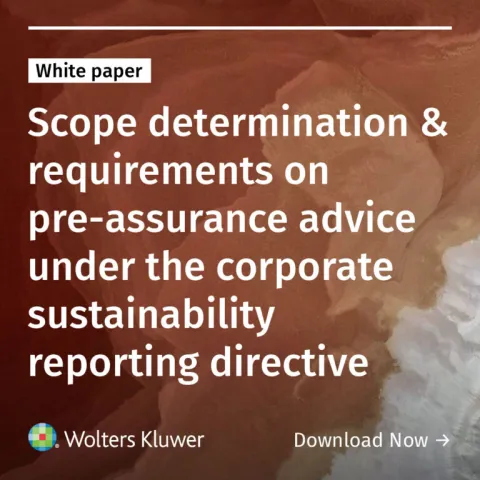When Can an Arbitration Agreement in One Contract Apply to Disputes Under Other Related Contracts? The New Zealand Case of Acanthus Ltd v Watercare Services Ltd [2025] NZHC 479
September 10, 2025
In Acanthus Ltd v Watercare Services Ltd [2025] NZHC 479, the High Court of New Zealand (“High Court”) addressed jurisdiction issues in the context of multiple contracts relating to the same overall transaction which have inconsistent dispute resolution clauses (“DR clauses”).
Although a first instance decision, the judgment merits discussion as it highlights the issues that parties in such a situation may need to navigate, including the increased risk of a jurisdiction dispute and/or parallel proceedings. The case was also the subject of discussion during the recent annual Arbitrators’ and Mediators Institute of New Zealand Arbitration Day, recapped in this blog post.
Background
The Agreements
The case involves two New Zealand entities: Acanthus, a property developer, and Watercare, the Auckland Council owned organisation responsible for Auckland’s water and wastewater networks.
In 2018, they entered into a contract for the construction of a wastewater network to a new residential property development that was being undertaken by Acanthus (“2018 Agreement”). This required Watercare to construct a pump station and pipeline, part of which would cross over a neighbouring property. Watercare had to use reasonable endeavours to obtain the neighbour’s consent for the pipeline to cross over their property.
Due to project delays, the parties entered into three subsequent agreements to provide tankering services as an interim solution whereby wastewater was loaded onto tankers and removed (“Tankering Agreements”). In 2022, they entered into an infrastructure funding agreement (“Infrastructure Agreement”).
The 2018 Agreement contained a broadly worded arbitration agreement, providing that “[i]n the event that any dispute, difference or question arises between the parties out of or in connection with this agreement or its formation (‘Dispute’)”, the parties shall work through the multi-tiered DR clause and if the Dispute is not resolved, the Dispute may be referred to arbitration under the New Zealand Arbitration Act 1996 (“the Act”).
The four other agreements contained informal DR clauses to the effect that the parties would negotiate in good faith to resolve disagreements between them. None of these DR clauses contained an arbitration agreement or otherwise mentioned arbitration.
The Dispute
A dispute arose and Acanthus commenced High Court proceedings, alleging seven causes of action against Watercare.
The causes of action included two alleged breaches of contract, primarily relating to breaches of the Tankering and Infrastructure Agreements. They also referred to an alleged ongoing failure by Watercare to remedy breaches under the 2018 Agreement.
The other five causes of action were non-contractual and included claims for breach of statutory duty, equitable set-off, breach of confidentiality, breach of the Fair Trading Act 1986, and defamation.
Watercare protested jurisdiction in the High Court and sought a stay of the proceedings on the basis that the arbitration agreement in the 2018 Agreement applied to all five agreements. Under the Act, which applies to both domestic and international arbitrations, a stay of court proceedings must be granted (and the parties referred to arbitration) if, among other things, there is a valid arbitration agreement in place and the matter in the court proceeding is subject to an arbitration agreement (schedule 1, article 8(1) of the Act). Schedule 1, article 8(1) of the Act is modelled on, but not identical to, article 8(1) of the UNCITRAL Model Law.
Arbitral Jurisdiction and Multiple DR Clauses
The Judge was required to decide whether the High Court or an arbitrator had jurisdiction to determine the dispute in this case.
This turned on an analysis of how to approach jurisdictional issues when there are multiple contracts between the parties with inconsistent DR clauses.
In dealing with these issues, the High Court asked two questions. Watercare only needed to succeed on one of these for its protest to jurisdiction to be successful.
Question 1: Is there an Arbitration Agreement that Applies to All Five Contracts?
As set out above, there was an arbitration agreement expressly recorded in the 2018 Agreement. Accordingly, the key issue was the scope of the arbitration agreement and whether it applied to all five contracts.
The Judge noted that New Zealand courts take a liberal approach to the interpretation of arbitration agreements. This reflects an endorsement of the Fiona Trust presumption that business people are likely to have intended that disputes arising out of their relationship be decided by the same decision-maker.
However, in “multi-contract situation[s] with two or more differently expressed choices of jurisdiction” — that is, where there are different DR clauses providing for different DR mechanisms (including other than arbitration) — the Judge said that this presumption is “not necessarily appropriate”. Rather, the Judge found that the following guidance applies:
- The “starting point” is that a jurisdiction clause in one contract was “probably not” intended to capture disputes more naturally seen as arising under a related contract;
- The courts take a broad, purposive, and commercially-minded approach;
- Where the series of contracts relate to a single transaction, the contracts should be interpreted in the context of the transaction’s overall scheme;
- Business people are unlikely to intend that similar claims be subject to inconsistent jurisdictions; and
- The “starting presumption” is therefore that competing jurisdiction clauses are interpreted on the basis that each deals exclusively with its own subject matter and do not overlap.
Applying these guidelines, the Judge held that the starting presumption was not displaced in this case — that is, the arbitration agreement in the 2018 Agreement did not apply to disputes arising under all five contracts.
The following factors influenced this decision:
- While all five contracts concerned the same transaction, they set out different obligations, were separately documented in different contracts at different times over five years, and were for different purposes;
- The informal DR clauses in the Tankering and Infrastructure Agreements were inconsistent with a compulsory reference to arbitration; and
- The Tankering and Infrastructure Agreements both contained entire agreement clauses.
Question 2: Does the Subject-Matter of the Proceedings Fall Within the Scope of the Arbitration Agreement?
The Judge considered that “at the core” of all seven causes of action was the same assertion, that Watercare breached the 2018 Agreement due to its alleged failure to use reasonable endeavours to obtain the neighbour’s consent.
First, the Judge said that this assertion formed the basis of the first four causes of action. In particular, it underpinned Acanthus’ argument that it should not be liable for certain invoices that it said would have been unnecessary had the alleged breach of the 2018 Agreement not occurred. While the Judge did not expressly refer to the language of the arbitration agreement in the 2018 Agreement when reaching this conclusion, in the authors’ view, it is clear that the Judge was expressing the view that the subject-matter of these assertions came under the definition of “Dispute” in the arbitration agreement – that is, they arose out of or in connection with the 2018 Agreement. Accordingly, they fell within the scope of the arbitration agreement.
Similarly, the Judge held that the fifth to seventh causes of action related to statements made by or on behalf of Watercare. The Judge said that these statements “focused on the same issues” as the allegation that Watercare had breached the 2018 Agreement due to its alleged failure to use reasonable endeavours to obtain the neighbour’s consent, or depended on the interpretation and alleged breach of the 2018 Agreement. In reaching this conclusion, the Judge acknowledged the general preference in favour of the arbitrability of disputes under the Act and that widely drafted arbitration agreements, like the one set out in the 2018 Agreement, can capture non-contractual claims.
Accordingly, the Judge held that the subject-matter of the proceedings fell within the scope of the arbitration agreement in the 2018 Agreement.
Watercare’s protest to jurisdiction was therefore upheld.
Commentary
In the authors’ opinion, this case reflects the High Court’s pragmatic, pro-arbitration approach to determining issues concerning arbitral jurisdiction. In particular, the High Court will endeavour, where possible, to avoid overlapping claims in different forums. Arguably, this is best reflected in the Court’s approach to Question 2, which focused on the substance of the allegations underlying each cause of action.
This case also makes clear that there will be different presumptions (or starting points) for determining arbitral jurisdiction depending on the makeup of the contractual arrangements between the parties. In summary:
- Where a dispute arises out of a single contract, the Fiona Trust presumption applies. In these circumstances, the presumption is that the parties’ intended for non-contractual claims to be captured by the arbitration agreement in their contract; but
- Where there are multiple contracts with different DR clauses, the reverse presumption applies. The parties will be presumed to have intended for disputes under the different contracts to be determined separately.
In both situations, the courts recognise that there is likely a commercial desire by business people to avoid similar disputes being determined in different fora. However, it is unclear from the Acanthus decision the circumstances in which a New Zealand court might be persuaded by this underlying policy consideration to displace the starting presumption.
The Judge also said that the Court generally carries out only a “prima facie” review where there appears to be a valid arbitration agreement, with issues of jurisdiction then being referred to the tribunal. However, in this case, the Judge recognised that her analysis was more akin to a “full review” but rejected Acanthus’ argument that this higher standard of review was required. In the authors’ view, the carrying out of a “full review” may have been determinative of the outcome on Question 2 and, therefore, the case.
Overall, the case serves as a salient reminder to parties who have multiple contracts in relation to one transaction to ensure consistent DR clauses. Any inconsistency therefore gives rise to a risk of jurisdiction disputes and, potentially, parallel claims. However, as we have seen in this case, New Zealand courts will attempt to remedy any such inconsistency where possible.
Finally, the case also provides useful guidance for parties who are navigating issues relating to non-compliance with multi-tiered DR clauses, and the circumstances in which this may entitle a party to cancel the arbitration agreement and bring court proceedings. These issues are addressed at paragraphs 64 to 94 of the judgment, but fall outside the scope of this post.
You may also like











